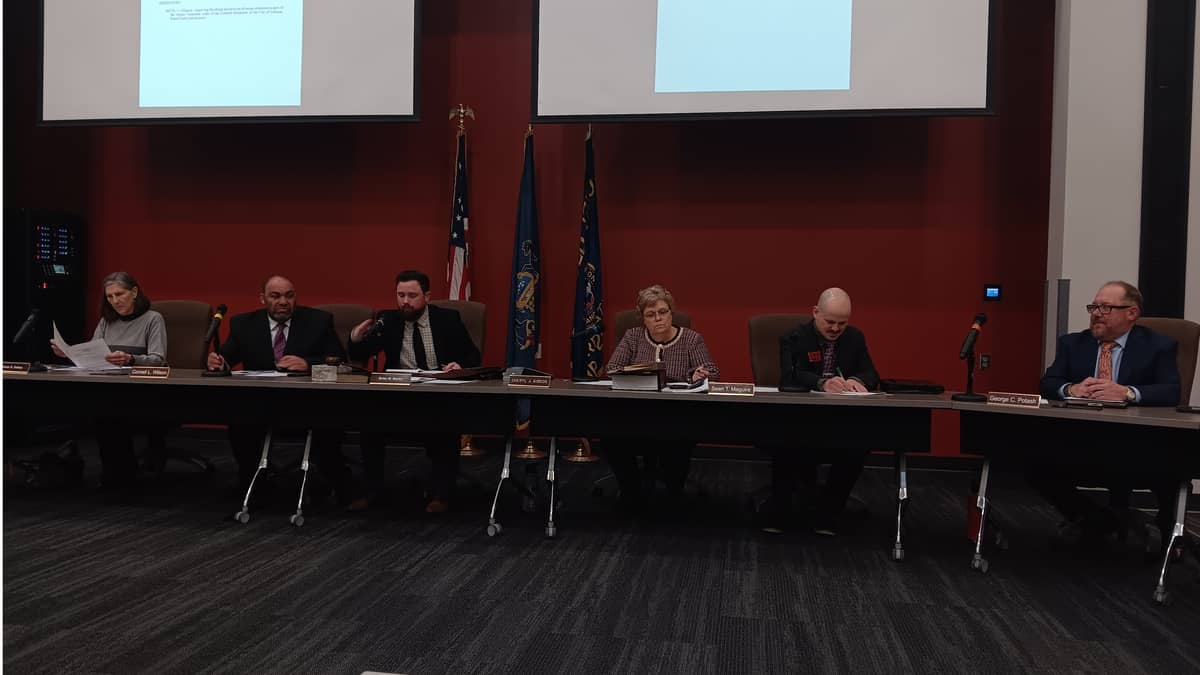This article is shared with LebTown by content partner Spotlight PA.
By Cynthia Fernandez of Spotlight PA
HARRISBURG — As students prepare to begin a highly unusual school year, Pennsylvania lawmakers on Wednesday told Wolf administration officials they’re concerned the state’s COVID-19 guidance could open districts to lawsuits.
Potential liability should students or staff become infected with COVID-19 at school is a top concern among education leaders. Even now, some districts are making changes to plans to operate in-person, virtually, or through a hybrid model as the state updates its recommendations.
While the Wolf administration ordered the closure of schools statewide in April, it has left decisions about fall operations to local districts. The departments of health and education in July released guidelines recommending, among other policies, that schools keep students at least six feet apart and serve meals in classrooms.
But during a joint House and Senate hearing Wednesday, the minority chair of the Senate Education Committee told top state officials that district leaders don’t see the guidance as optional.
“I keep hearing the expression, ‘We are simply giving guidance or recommendations,” Sen. Andy Dinniman (D., Chester) said. “In the end, is it not true that what you say is a recommendation, ends up being a mandate because school districts are afraid of being sued and taxpayers losing millions of dollars?”
Whether Pennsylvania will provide liability protection to schools remains to be seen. A spokesperson for House Republicans did not directly answer a question about whether leadership would support a bill with that aim. A spokesperson for Senate Republicans could not be immediately reached late Wednesday.
Gov. Tom Wolf has used his executive power to grant limited liability protections to health-care practitioners but not to facilities like nursing homes. When asked Wednesday about schools, Wolf spokesperson Lyndsay Kensinger said the administration wants “to be careful to not incentivize reckless decisions” that go against state and federal orders and guidance.
During the hearing, Health Secretary Rachel Levine emphasized the importance of local decision-making and said the guidelines were released at the request of local school administrators.
“The superintendents and the school boards are free to make their own decisions, but they specifically asked for this guidance and we provided,” Levine said. “These are recommendations, these are not mandates. There is local control.”
Still, those on the ground have said leadership from the state level is lacking. The head of the Pennsylvania Association of School Administrators previously said public health decisions have fallen on unprepared districts, while superintendents from Montgomery County called earlier guidance “nebulous and confusing.”
In response, state officials this month released recommendations for how schools should operate based on the prevalence of COVID-19 in their communities. In a county with less than 10 cases per 100,000 people, for example, the state recommends schools open or operate through a combination of in-person and virtual learning. Officials this month also made recommendations regarding how schools should respond to cases and the circumstances under which they should consider closing.
But conflicting guidance is still an issue. As Dinniman noted, districts in Chester County have scrapped existing plans in favor of beginning the school year virtually after the county health department recommended buildings remain closed until Oct. 9.
In states where schools have resumed in-person learning, large groups of students have been forced to quarantine. While children infected with COVID-19 experience lower hospitalization rates than adults, Levine said there are 43 confirmed cases of a serious inflammatory syndrome in young Pennsylvanians. Nineteen cases are under investigation.
For schools that choose to resume in-person learning, Levine this week clarified that masks will be mandatory for students, even when they are maintaining the recommended amount of distance.
“It’s better to be in school,” said Levine, a pediatrician. “However, if they are in a county that has significant, substantial transmission of COVID-19, then it would not be safe to be in school and the recommendation would be to find other types of learning opportunities.”
100% ESSENTIAL: Spotlight PA relies on funding from foundations and readers like you who are committed to accountability journalism that gets results. If you value this reporting, please give a gift today at spotlightpa.org/donate.
Read all of LebTown’s COVID-19 coverage here.
Is there a story you think LebTown should report? Let our newsroom know using the form below.
Help us provide journalism Lebanon County needs.
If you are thankful for LebTown, consider joining as a member. Members get an inside look at our publishing schedule each week, plus invites to a members-only Facebook group and happy hours.
Learn more and join now here.
Subscribe to our newsletter for updates each weekday at 3 p.m.

























